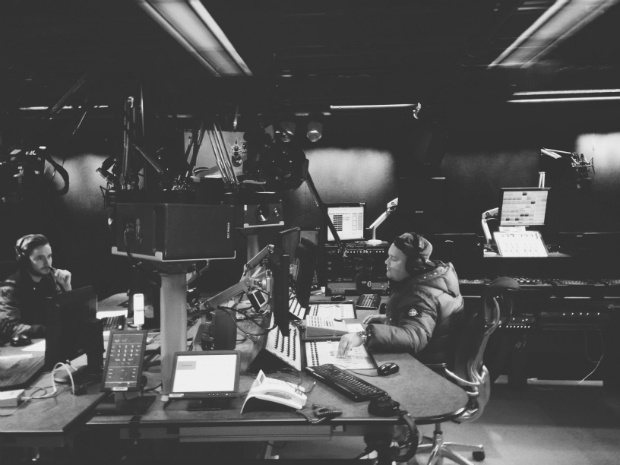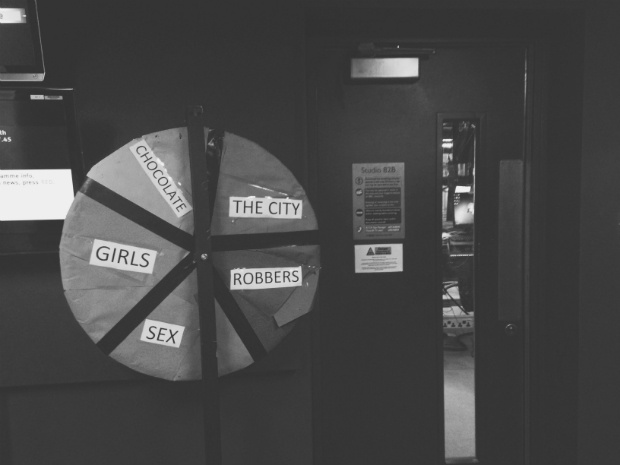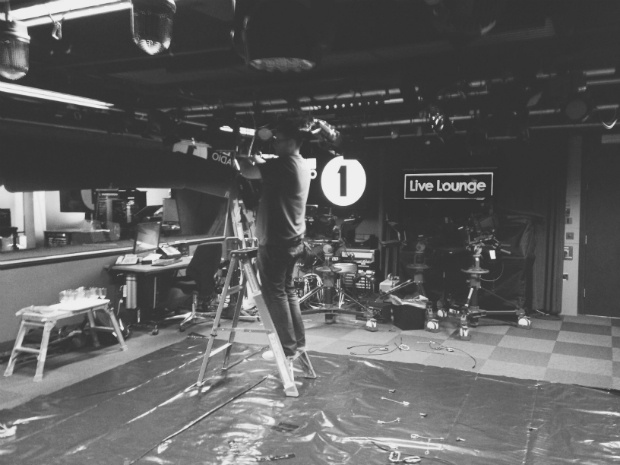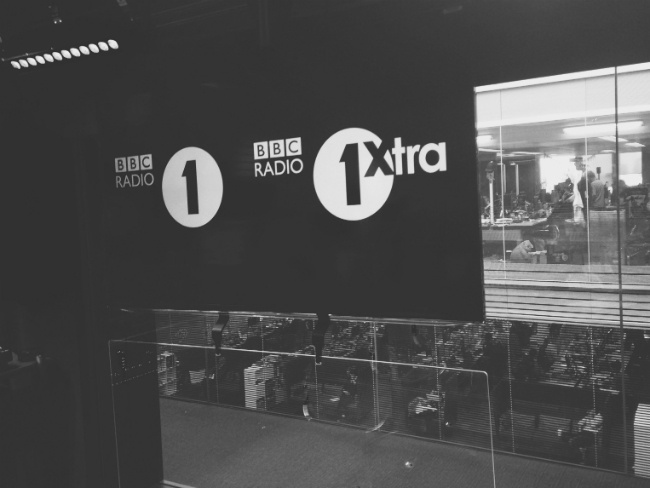On a recent trip to London, we were invited to the BBC's New Broadcasting House to speak with Head of Programming for Radio 1 and 1Xtra, Rhys Hughes, about the goings-on at the organization. Smartly dressed, soft spoken, and an undying fan of '80s punk rock, Rhys rose through the ranks of the BBC and is now responsible for many of the station's most visible entities—the Essential Mix, radio shows, and the station's Ibiza presence all operate under his oversight. Sitting together in a brightly lit press room, Rhys explained how a variety of factors have come together to shape the Radio 1 & 1Xtra that we know today.When it comes to making shows happen, the responsibilities fall on a team far smaller and less centralized than you might think. A team of just two works on a minimum of three shows per week, alongside each respective presenter. "It's a collaborative effort," Rhys tells me. "It's not some superstar DJ here up on a pedestal and we all kind of serve them. It has to be a two-way process. I think what we're really keen to foster at [here] is a family feel where everyone helps each other." Rhys credits this philosophy as the key to their efficiency.
Radio shows go from concept to airwaves in one of two ways: either an independent production company will bring ideas, like the Diplo & Friends mix, to the BBC or it will be conceived in-house. Rhys jumps into story mode to explain the origins of one of his favourite in-house shows.The Annie Mac Show is a prime example of just how strangely the development can flow at times. Annie got her first taste of the BBC during a two-week work experience placement on the Zane Lowe show, when Rhys was an executive producer. After completing the contract and putting some student radio experience under her belt, it wasn't long before she returned as a broadcast assistant for Zane Lowe. Not wanting her ambition of having her own show go unnoticed Annie would constantly remind Rhys until finally, she got her pilot. Thinking back on that first show, Rhys' voice wells up with pride. "We put her in the studio and that soft, lilting Dublin accent really won us over. She taught herself to DJ and we ended up giving her a show on Thursday night at 9pm." Rhys catches himself before he gives himself too much credit. "I'm not going to claim anything from that point onwards," he explains, "Annie has become the world's biggest female DJ completely off her own bat."The decision to put a woman in such a prominent role was a deliberate one for Rhys and the BBC. "I feel like female DJs have been really under-represented in dance music for a long time," he explains, "I can't remember which magazine had a top 100 DJs, but there were only three women in there, which I think is just ridiculous. From Maya Jane Coles to Magda to Nina Kraviz, there are so many DJs that deserve to be in there." The Radio 1 & 1Xtra rosters have since grown to include a wealth of prominent personalities such as B.Traits, Hannah Wants, and Heidi to name just a few.
Melody-driven house acts like Duke Dumont may be a personal favourite of his at the moment, but Rhys vigorously defends the station's diversity against critics that claim it's too devoted to house music. "I think the challenge for us is always to remain distinctive," he tells me. When you actually take the time to look at the various shows on air, his words do in fact have more weight than the Radio 1 is given credit for. Rhys laughs when I ask how they keep up to date on current music trends. "If I told you that I'd be revealing too many secrets," he says. What he would reveal, however, was that many staffers from various in-house and independent production teams are constantly keeping tabs on clubs throughout the country, looking for the next sound or artist to showcase.Although it's a contentious topic in many underground circles in the UK, Rhys defends his station's support of EDM. Balancing out programs from their more eclectic residents, he tells me Danny Howard's Dance Anthems and several big name progressive house acts remain important to the station in order to reflect the current state of music at the moment. Indeed, with both Tiesto and Martin Garrix making appearances at 1 Big Weekend you can hardly deny that the sound is beginning to permeate the British music industry."There's a slight irony because I remember being in Miami for WMC in the early 2000s, when UK garage and house were really hot, and much of the American audience there struggled with it. When I see 150 thousand people on a racetrack outside Las Vegas, off their nuts, dancing to house music…the irony is not lost on me," Rhys jokes.The influence of mainstream EDM and drunken British vacationers from the Midlands has done little to shake the BBC's support of Ibiza, now entering its 20th year on the island. A 30-year veteran of its many clubs, Rhys still describes it as a magical place with many venues, such as DC10, catering to the nichest of underground listeners.
Despite widespread, positive reception in youth audiences, the two stations under Rhys and director Ben Cooper's care aren't free of criticism from other figures at the BBC. Just this year, fellow staffer Jeremy Paxman publicly questioned the stations' existence after hearing an unsavory song being piped into the building's lifts. Ben Cooper's response: "Take the stairs." Rhys explains the incident with a smile on his face. "Basically, all the BBC radio stations are pumped into the lifts and I think the person in question took particular opinion to quite a hardcore grime tune that happened to be playing," he tells me. "Let's not worry too much what a 63-year old thinks of UK grime."Now hovering around the two million-follower mark on all social media channels, it's clear, that they haven't fallen short in the fight for viewers' attention. Despite this, they still have a few more tools on the way: In addition to activating iPlayer use for their shows, would-be listeners will also have access to BBC Playlister in the coming months. Built in conjunction with several other music businesses, the functionality will allow anyone listening to say, Zane Lowe's Hottest Record of the Day, and add it to a Spotify playlist.A constant target of takedown notices from the BBC, SoundCloud is another music service constantly on Rhys' mind. Although the whack-a-mole climate of issuing cease and desist letters to users selling Essential Mix rips, only to have them pop up again a few days later gets tiring, the team remain hopeful that the service will find the right balance between user and rights holders' interests in time.
Like any large institution, Radio 1 & 1Xtra will always have their work cut out for them to maintain their place at the top. In the face of rapidly evolving musical, cultural, and technological landscapes, have never made it harder to maintain relevance. The issue, however, is one that Rhys Hughes and the incredible teams at both stations are more conscious of and better equipped for than ever before.Ziad Ramley is on Twitter: @ZiadRamley
Advertisement
Advertisement
Advertisement
Over the past five years, the landscape of competition has changed dramatically for Radio 1. Where before they were going head to head with the likes of school radio, Triple J, and the Hot 97, now Rhys admits they're going up against something far less defined. "It's anything that takes up young people's time," he explains. "That's the sort of changing, cluttered media landscape that we're in now and we have to fight hard to get the attention of young people." With YouTube channels such as Majestic Casual, Mr. Suicidesheep, and The Sound You Need growing ever larger, it's hard to disagree with him.
Advertisement




